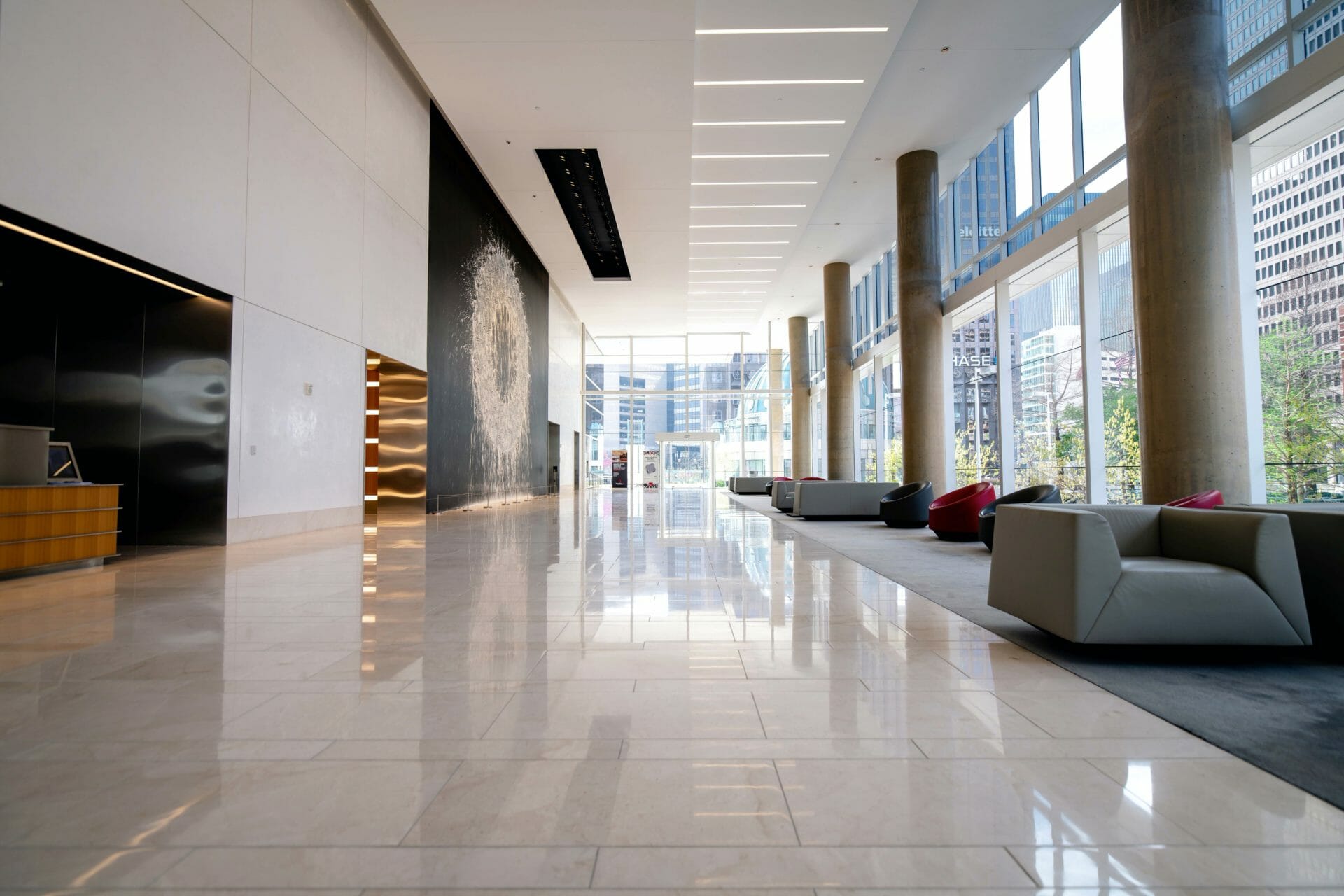Most of us are not health professionals which is why we are all relying on directives and recommendations from health officials to help us safely navigate COVID-19.
Condo corporations should be creating temporary guidelines, rules and procedures for their community based on the credible information they receive from city leaders, doctors and researchers. They have all told us that social distancing is key to stopping the spread of the coronavirus, and everyone is being advised to stay home unless they are going to work, getting food, or picking up medication.
That being said, in case someone is not following the rules, can condos ban visitors from the property?
Should residents invite people over right now?
The simple answer to this question is no. Every state has slightly different stay-at-home orders, but most are still asking people to avoid seeing anyone who isn’t a part of their household. Canadian officials are making similar orders.
Condo residents should not be inviting people over for drinks, dinner, or to hang out. They should continue to keep their distance from anyone who they don’t live with.
Can you stop a visitor from entering the building?
Some condos have asked if they can enforce a visitor ban for their condo. While there are things they can do to discourage visitors from entering the building, they cannot physically stop people from visiting, nor can the screen visitors who are exhibiting coronavirus symptoms. They can take proactive measures to educate owners though, and dissuade them from inviting visitors to their home.
Friends/Family
Condo corporations should post notices advising owners to refrain from inviting visitors over, especially visitors who are exhibiting symptoms of the coronavirus, who have recently travelled abroad, or who have come into contact with someone who has tested positive for COVID-19.
Germs can spread quickly in a condo. Multiple people are touching buttons and door handles over the course of the day, and they more people there are coming in and out of the building, the more likely it is that someone who lives in the building will contract the virus. Your building may house some vulnerable populations, including people with compromised immune systems or people who are over the age of 60. By having fewer visitors, these populations are more likely to remain healthy.
As mentioned before, condos should refrain from conducting screenings of any sort, however, they can have a sign-in system, such as a sheet, to create a record of individuals who have entered the condominium (don’t forget to make hand sanitizer available for visitors who are handling the pen and touching the sign-in sheet). Should an issue arise concerning a visitor, the condo will at least know who the visitor was and which unit they entered.
Staff who are responsible for managing the front desk can also use online software, such as our Security & Concierge feature, to log visitors. Concierge can document the visitor’s name, indicate if the visitor is a friend or contractor, and add comments to every log.
Contractors
If the contractor entering the building has been hired by the corporation and is carrying out essential repairs, management should ensure that the service provider is following the necessary precautions. Part of the inquiry prior to the service provider attending the building should include questions about whether the contractor will be providing their own protective equipment. If the service provider doesn’t have personal protective equipment for its contractors, the corporation may provide the contractor with a mask and gloves.
Residents should be discouraged from having any unnecessary contractors in their unit. That means waiting to do any non-essential renovations or repairs. If renovations started before COVID-19, residents are being advised to hold off on finishing them until it is safe. Condos can also be stricter about ongoing construction noise, and can advise residents that construction noise must be kept to a minimum because so many people are working from home.
Essential visitors
Essential visitors, such as contractors who are making emergency repairs, should be permitted to enter the building or a specific unit, but they should ensure that they are taking proactive measures to keep themselves, and others, safe. There are instances where visitors will need to be in the building. Do your best to help them complete any essential tasks quickly, professionally, and safely.
What about short-term rentals?
Short-term rentals should not be offered during this time. While you cannot physically stop residents from renting out their unit, condos may be able to impose fines. State and local governments have passed measures to prevent property managers from booking short-term rentals. The province of Ontario has also temporarily banned Airbnb and other short-term rentals during the coronavirus pandemic. Under the Emergency Management and Civil Protection Act, the ruling stipulates that short-term rentals are only permitted for individuals who are in need of housing during the emergency period. If found breaking the emergency law, individual hosts could face fines up to $100,000, and corporations could be looking at $10,000,000.
It is simply too risky to allow short-term rentals during the COVID-19 pandemic. Guests may be trying to rent to stay away from others who have symptoms or who have been diagnosed with COVID-19, and they could become sick while staying in the unit. Hotels are regulated spaces, are cleaned by professional staff, and they are under tight control in terms of public health. This is not necessarily the case for short-term rentals. Cleaning and thoroughly sanitizing the units would be difficult and cleaning staff are busy enough right now.
Boards have an obligation to act honestly and in good faith to support the best interests of the corporation, and it’s important that the property is reasonably safe for those who live there.
Communicating with your staff
While it is very important to communicate best practices to your residents, it’s also important to share information and instructions with the staff who are working in the building. Explain to them what the expectations are, and let them know what they should do if guests do show up. Most importantly, help ensure that they stay healthy and safe.
Employees want and need to know that their employer is prepared and has a plan to get through the COVID-19 pandemic. Strong internal communications provide employees with peace of mind and minimize the dissemination of false information and rumours. Reassure your team that you’re monitoring the status of COVID-19 both internationally and locally, and update employee safety practices as new information becomes available.
Conclusion
Visitors should not be coming to see your residents unless they are there to perform an essential service. Everyone should be staying home unless they are going to work or picking up essential supplies.
Condos cannot stop visitors from entering their building, but management can discourage residents from inviting anyone over. If you need additional guidance about how to handle a particular situation involving guests, seek advice from a lawyer.



